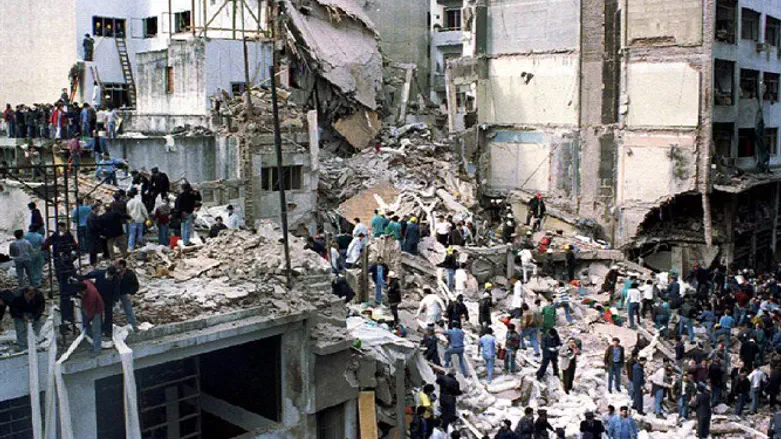
The fathers of two AMIA Jewish Center bombing victims have been named as plaintiffs in a case against former Argentine President Cristina Fernandez de Kirchner, which could reopen the investigation of the late prosecutor Alberto Nisman into a cover-up of Iran's role in the 1994 bombing.
Nisman was found dead on Jan. 18, hours before he was to present his allegations of a secret deal to cover up Iranian officials’ alleged role in the AMIA bombing to Congress against Kirchner, former Foreign Minister Hector Timerman and their government. Whether Nisman's shooting death in his own apartment was murder or self-inflicted has yet to be determined.
Argentinean federal judge Claudio Bonadio on Tuesday accepted a request made by two fathers of AMIA bombing victims to be considered as plaintiffs in the case against Kirchner and Timerman, along with members of Congress who in February 2103 voted for the controversial memorandum of understanding with Iran that initiated the joint investigation of the AMIA attack.
The memorandum of understanding was voided in December by Argentine President Mauricio Macri a week after he took office.
Since December, Bonadio has been in charge of investigating a complaint based on secretly recorded phone conversations from 2012 in which Timerman said that Iran was responsible for the 1994 bombing of the AMIA Jewish center in Buenos Aires while he was negotiating the agreement with Tehran.
“If there was someone else, they [the Iranians] wouldn’t have planted the bomb. So we are back to the beginning. Do you have someone else for me to negotiate with?” Timerman said in the recording, which came from a telephone conversation he had with then-AMIA President Guillermo Borger – an opponent of Argentina’s brief collaboration with Iran on the investigation. Six month later the judges admitted the recording as evidence.
Luis Czyzewski, father of Paola, and Mario Averbuch, father of Yanina, who died in the 1994 terrorist attack, in a written request asked the judge to analyze the 2015 Nisman complaint against the last Argentinean administration as part of the same case, related to the alleged move to whitewash Tehran's role in the AMIA bombing.
Simultaneously, the Argentinean Jewish political umbrella DAIA asked Federal Judge Daniel Rafecas to reopen the investigation.
Rafecas, the judge who rejected the Nisman accusation, ruled in March that no new evidence has come to light and that the case is already closed due to the absence of a proven criminal offense.
DAIA leaders called the Timerman recordings – and others - new elements in the case, in their request to reopen the Nisman accusation.